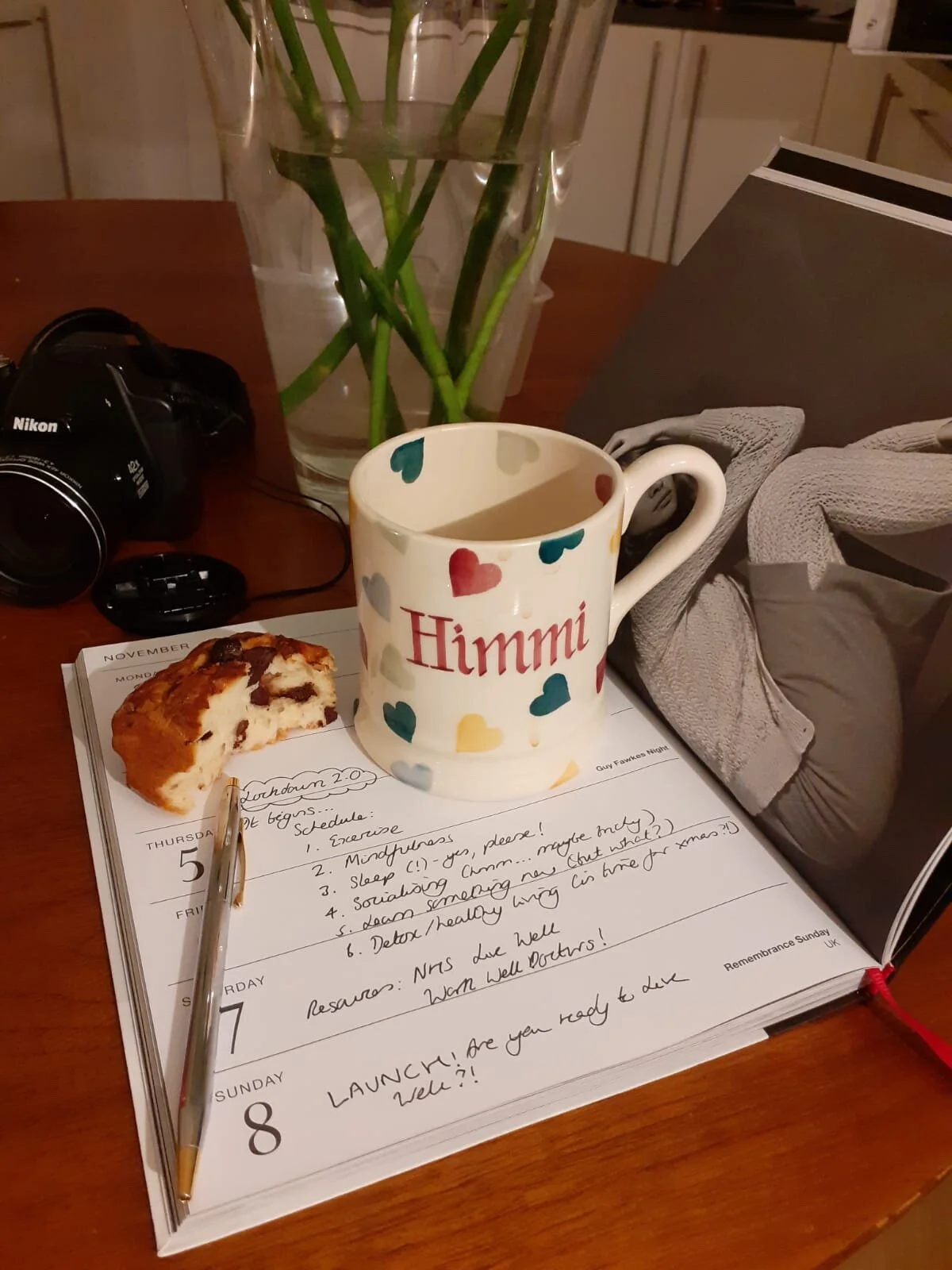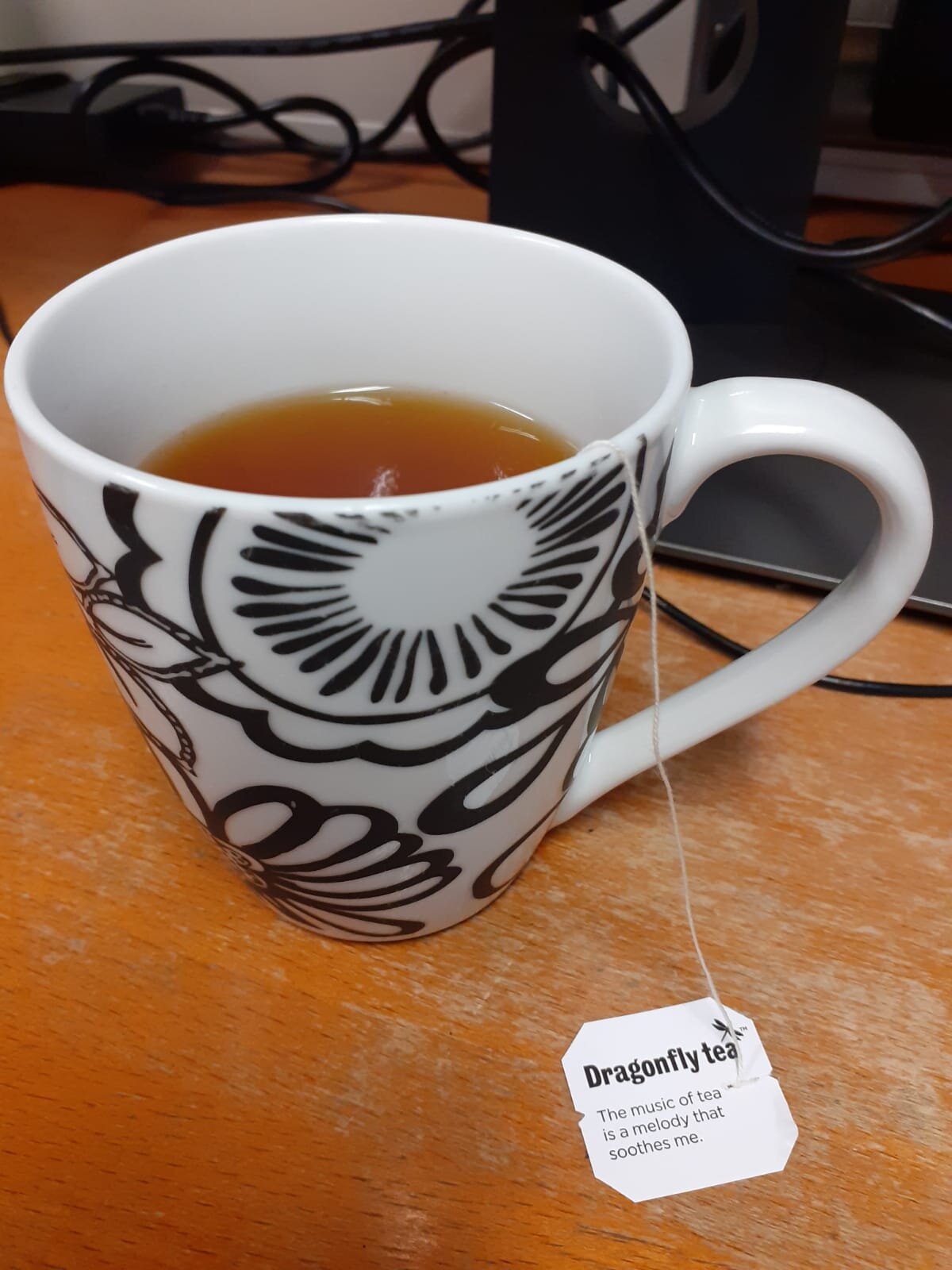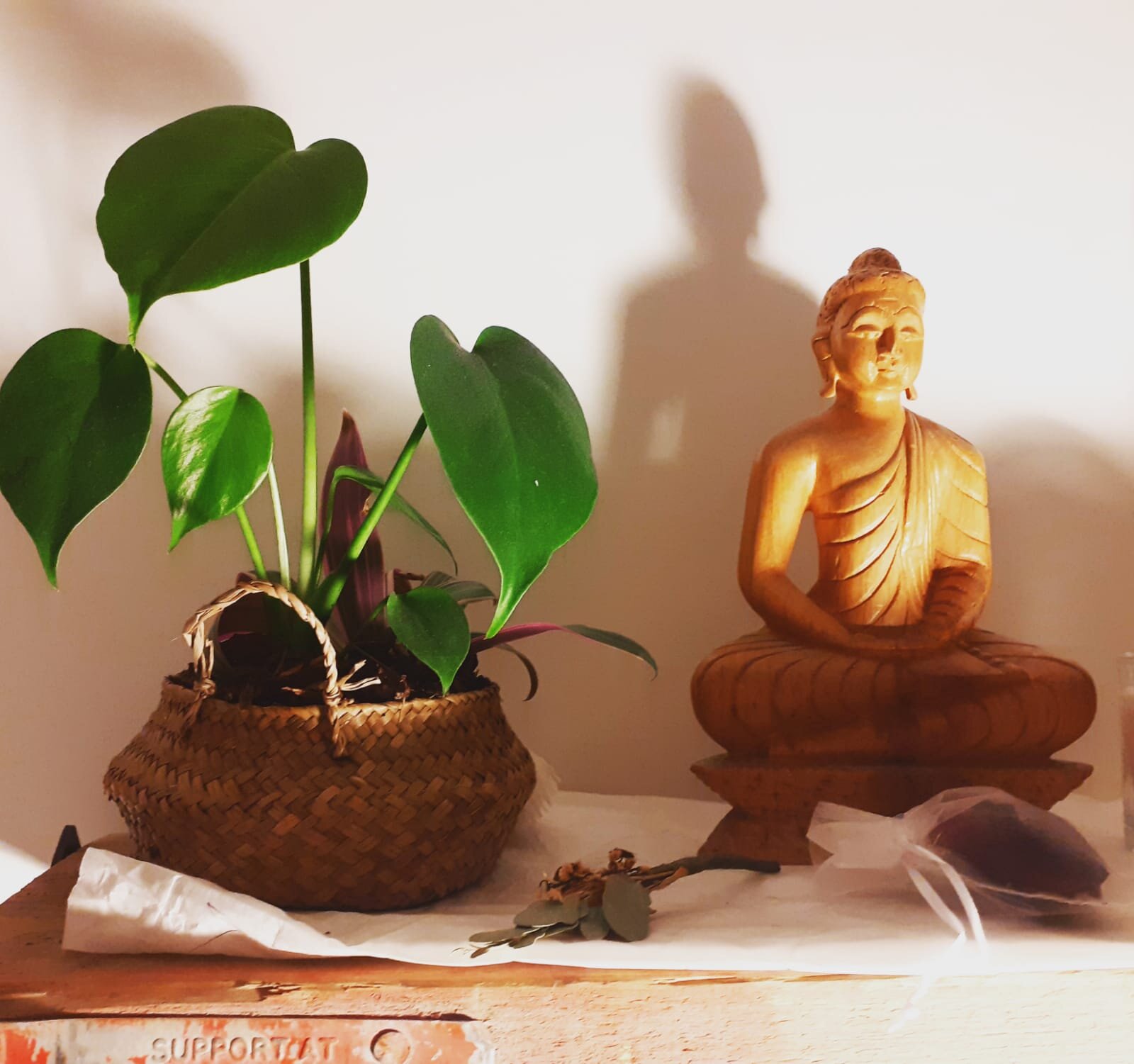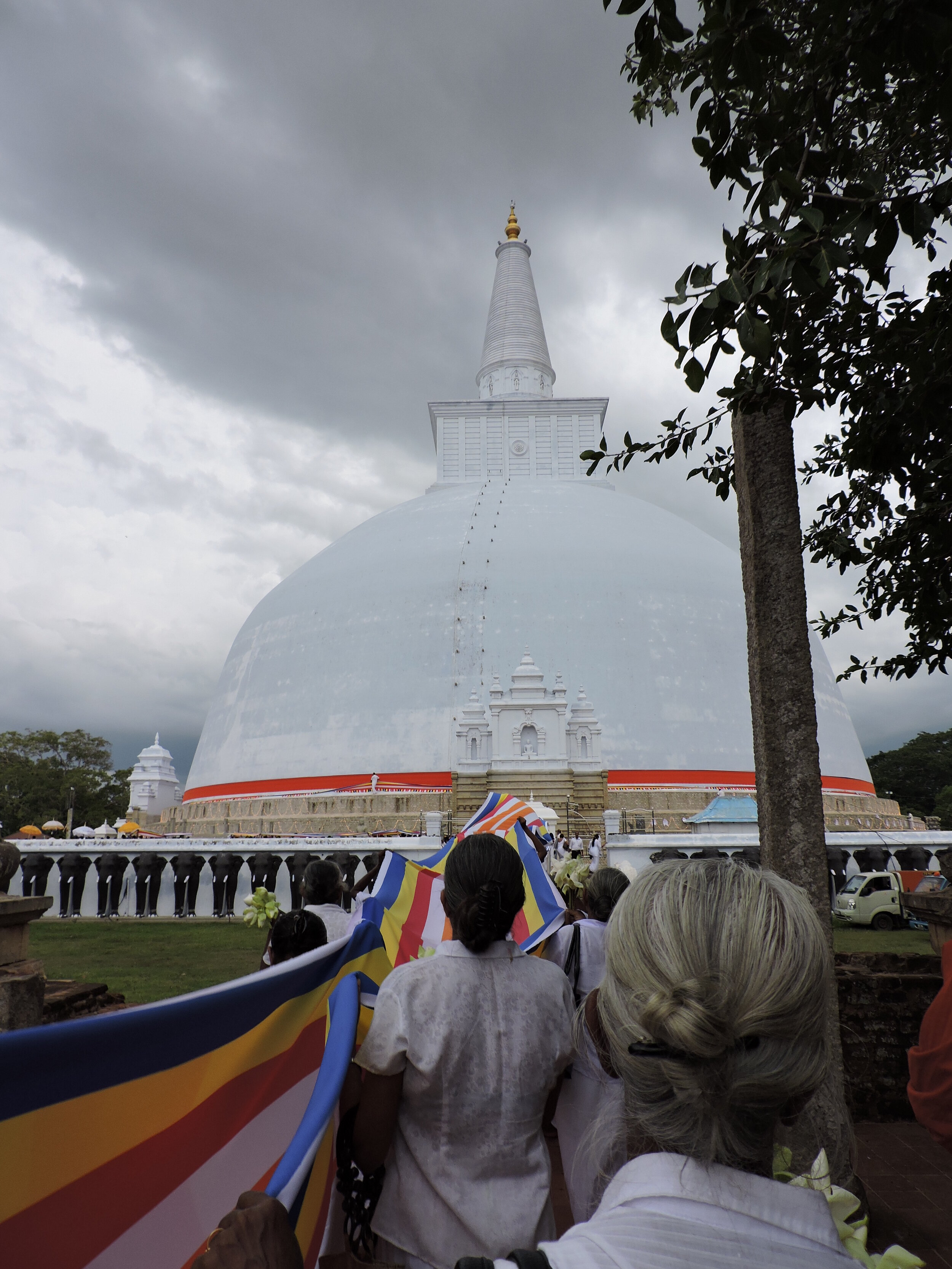Week 2: Mindfulness
/Week 2: Mindfulness
And breathe…
Are you seated comfortably? Alright then, go ahead. Close your eyes and breathe in deeply.
And that’s when it starts to go wrong.
It’s 7.30 a.m. and I’ve decided to start Week 2 of my Live Well program with a mere 5 minutes of mindfulness before getting ready for work. The Monday morning commute always puts me on edge, and my hope that is mindfulness will offset the adrenaline, but it’s clear that this is going to be more of a challenge than I expected.
As soon as I close my eyes, my thoughts come into sharper focus. This is not necessarily a good thing. The soothing voice from YouTube fades and instead, my monkey mind starts to chatter, offering me a tour of the zoo. Over here, there’s anxiety, busting free from it's cage, and right next to it, stress is not so much behind bars but pushed back by the thousand other thoughts I continuously ponder. Time, space and most importantly, attention, has made me aware of just how poor my mental hygiene is.
My mind is a mess.
Which makes for an uncomfortable five minutes. Chores blossom as the guru in the background encourages me to do an Elsa and let it go. Let go?! But I have to remember to do these things today! I wonder if I can just pause the video and get my notebook to write it down, but if I do that, I know I’ll never get through the whole online exercise, too many other tasks will pop up that I’ll want to jot down. Somehow mindfulness seems to be the perfect opportunity for me to recall all the things I am meant to be doing in my day and with my life in general. This, as I gather, is not what is meant to happen.
As you can probably tell, I am not a natural meditator. I have had ample evidence of this throughout my life, starting from a relatively young age. My family are Buddhists, hence, I frequently attended temple when I was growing up. Towards the end of the devotional service known as the puja, there would be a dedicated period of meditation. I am uncertain of how long it actually lasted but to me, a child waiting for the post-puja feast, it seemed eternal. I couldn’t concentrate, was invariably hungry/greedy and thus, meditation seemed like a pointed form of punishment. Maybe that’s where my negative associations about mindfulness came from? It has become synonymous with “I could be doing/eating something else.”
Meditation was very much part of my culture growing up, however, as I found this week, I lack many of the crucial skills to practice it successfully.
Flash forward to Monday 16th November 2020 and the YouTube yogi is exhorting me to “come back to my breath.” I panic, realising I have spent the last five minutes stuck in a sort-out spiral, which completely obliterated the supposed five minutes of calm I was meant to be practising. I will have to do better.
As much as I am loathe to, I must keep at it. After all, I have to have a fair go at mindfulness to be able to accurately review it in this blog. The next day I settle down again, press play and close my eyes.
The teacher encourages me to breathe deeply. I do. Concentrate on your breath. I will.
The thoughts start to crowd back in but I try to shut them out, doing exactly what every instructor says I shouldn’t do. I can’t let thoughts come and go like buses, no, I have to make a definite, super-human effort to not think about all the tasks and worries that coming loping to the fore, when I give myself time to think. No calming analogy works. I begin to despise the image of a leaf floating down a river and I can tell that I am getting worked up again. Mindfulness does not bring out the best in me.
Breathe in and breathe out. I overcompensate and suck in giant volumes of air through my nose. The room is cold and the dry air stings my nostrils but it does the trick, I start to get a hyperventilation high and then my brain starts to calm down. This I can do. My breaths get deeper, more exaggerated, and soon my attention is focused on the draught circulating in my airways. Sooner than I expected the video finishes and I am called away from my breath, to the competing demands of the day.
I notice that something is different in the car. Usually, the heinous morning traffic has me seething but today the never-changing traffic lights hardly register. Suddenly I become aware that above the buzz of the radio, I can hear a rhythmic whooshing noise. I realise that I am breathing in a similar fashion to the meditation practice earlier, inspiring deeply and getting quietly euphoric from the change in blood chemistry. There may be a false association but the rest of the day seems to go better than it usually does.
Mindfulness is increasingly recognised in the medical community as a potential tool in the management of certain conditions. For instance, the all-seeing eye of NICE (the National Institute for Clinical Excellence) establishes enough evidence from trials to recommend mindfulness as a treatment in episodes of recurrent depression (1). Furthermore, fMRI studies have shown decreased activation of the emotional arousal centres of the brain in people, who practice mindfulness (2), which could explain why I found my morning commute less aggravating than usual.
However, like the scientific understanding behind it, my practice of mindfulness is in its infancy. Unlike exercise, I am a complete novice when it comes to being mindful and as such, the practice borders on painful. Throughout the week, as I tried to work in 5 - 10 minutes of self-awareness here and there, I felt like I did at the beginning of my “Couch to 5km” journey - like an incapable idiot. How could it be so hard to sit still and become aware?
I have no doubt of the beneficial effects of mindfulness in the longterm. I can see how if practised regularly, it can become an invaluable tool to improve mood and wellbeing, but it is suprisingly hard for the uninitiated. I confess, I am not quite a convert to mindfulness yet, but give it time, and I may find there is nothing else I would rather be doing/eating.
References
https://www.nice.org.uk/guidance/cg90/chapter/Recommendations
Mindfulness and emotion regulation—an fMRI study. Jacqueline Lutz, Uwe Herwig, Sarah Opialla, Anna Hittmeyer, Lutz Jäncke, Michael Rufer, Martin Grosse Holtforth, Annette B Brühl. Social Cognitive and Affective Neuroscience 2014, 9 (6): 776-85








